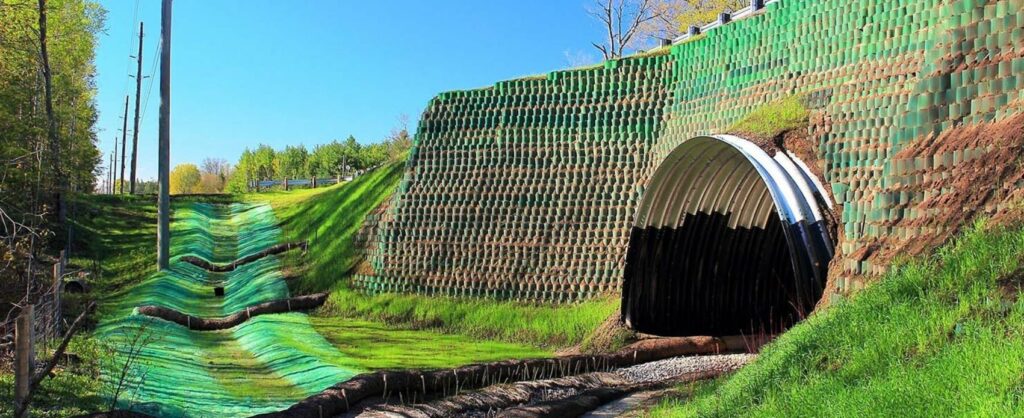Fascia vegetation
What is fascia vegetation?
Fascia vegetation refers to plant life that is strategically integrated across the facades of buildings, those visible bands or panels that run horizontally across the exterior of a structure. This increases the aesthetic value of urban architecture while adding an ecological component. For a civil engineer, this is done under strict planning, as the superstructure of the building must support such a load, especially with the weight and dynamic loads of the wind.
The kinds of plants normally selected in such integration have to be first and foremost locally feasible about climate and architectural conditions, hardy, and easily maintained. The role that fascia vegetation plays is the enhancement of the thermal insulation in buildings, reduction of the temperature of the urban heat island, and augmentation of the air quality.
Understanding fascia vegetation
Fascia vegetation is implemented in the form of hardy, low-maintenance plants used on building exteriors for both differentiated aesthetics and functionality. The optimum species for such applications are sedums, hardy ivies, and ornamental grasses. Such plants have qualities that tolerate harsh conditions and simultaneously need minimal soil, making them perfect selections for green facades. The aesthetic characteristics of such plants include rapid growth and dense coverage but require minimal care.

In this regard, the civil engineer must be very keen to ensure that such plants do not have invasive root systems and do not interfere with structural members or cause additional maintenance. Such integration is a principle in modern architecture and provides such ecological benefits in terms of air quality and thermal regulation that it contributes to the building’s sustainability credentials and enhances its environmental performance, thus providing sustainability in energy usage.
Types of commonly used plants for fascia vegetation
- Sedums: These are the plants selected for their drought resistance and their minimal root intrusion, thus perfect for shallow soil systems. They thrive with little water and maintenance.
- Ivy Species: Ivy covers expansively and has properties of adhering to architectural forms without any difficulties. Its natural ability to cling to surfaces makes it a traditional choice for creating green facades.
- Ornamental Grasses: These grasses greatly add aesthetic value and importance to buildings. They are natural insulators and modify the facility’s thermal quality and ultimately, in the long term–responsible for energy savers.
Importance and benefits of fascia vegetation
Planting vegetation on a building’s façade is associated with a wide range of environmental benefits. Vegetation on facades cools the building’s surface and the immediate surrounding air. This reduces the urban heat island effects hence promoting urban comfort with minimal requirement of energy for cooling. These plants absorb pollutants and purify the environment; they help dampen urban noise, contributing to a quieter and more pleasant environment.
In conditions related to civil engineering, the application of green façade enhances sustainability for modern construction, and its application can increase the LEED rating to a new higher level. The ecological benefits of these green facades show the importance of these elements in contemporary urban constructions.
Benefits of facade vegetation
Greening house facades has several advantages:
- Energy Efficiency: Plants have natural insulating properties that decrease the need for artificial cooling and heating systems.
- Building Protection: Plants act as buffers and protect the external surfaces against weathering and UV damage. This can extend the life of the material.
- Aesthetic and Property Value: Green facades can make the building more appealing .It also enhances the property value.
How to maintain and care for fascia vegetation?
Proper maintenance is integral to the success of fascia vegetation systems. This would involve:
- Irrigation: Setting up a drip irrigation system that will guarantee the least use of water, yet provide the plants with enough water without causing oversaturation
- Fertilization: Feeding should only be done once or twice a year. Excessive foliage is not to be encouraged as this will put more weight on the structure.
- Pruning and Trimming: Regular pruning is necessary to maintain the desired shape and prevent vegetation from obstructing windows, vents, or other building functions.
- Structural Inspection: Periodic checks of the supporting structures must be done to ensure they are safe and not compromised by the vegetation.
Techniques for installation of fascia
Installation of the fascia vegetation requires the highest level of the meticulous planning and execution:
- Assessment: Check the structural integrity of the building and whether additional support will be needed.
- System Selection: Determine whether modular systems or continuous planters are more appropriate based on the building’s design and the vegetation’s needs.
- Waterproofing and Root Barriers: These systems are installed to prevent water intrusion and root barriers to the building.
- Installation: Mount systems to proper fastenings taking into account proper load distribution and wind uplift.
- Integration with Building Systems: Vegetation systems should not compromise the function of other building systems, for example, drainage or heating, ventilation, air conditioning (HVAC) systems.
